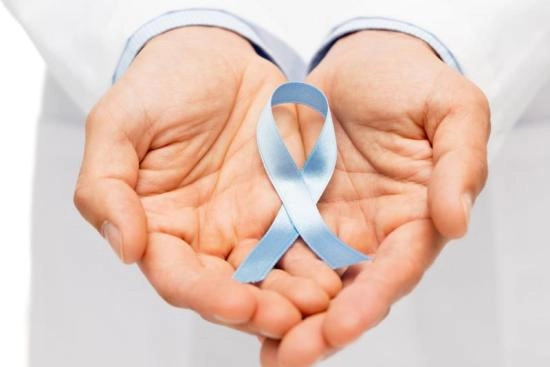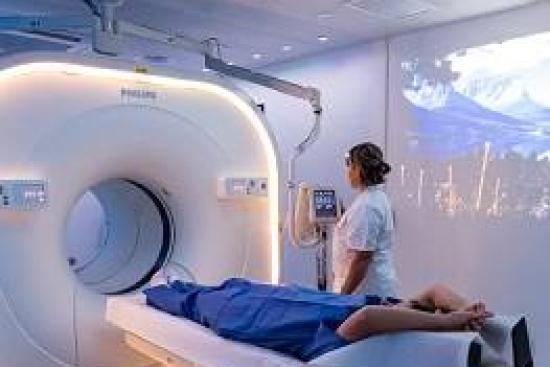Our partner clinics have demonstrated significant progress globally in treating oncology in Turkey.
It is a branch of medicine dedicated to the fight against cancer. It deals with the diagnosis, treatment and follow-up of patients suffering from this disease.
Best Clinics with Verified Reviews

- Multispecialized hospital
- 7 operating rooms
- Capacity é of 170 beds
What is the role of an oncologist?
An oncologist is a specialist physician who analyzes the diagnostic results of a tumor to determine its stage and severity. Based on these tests and the patient's medical condition, the oncologist plans the most appropriate oncological therapy.
Focusing on the so-called tumor biopsy, the in-depth study of a tumor is a mandatory and indispensable step for the oncologist, without which it is impossible to establish a potentially valid and effective therapeutic pathway.
The development of a therapeutic strategy for cancer by an oncologist is carried out in collaboration with other specialists through multidisciplinary consultations. The goal is to provide comprehensive cancer care.

Early signs of cancer
Cancer is a disease that can occur in different parts of the body with different signs and symptoms. It's important to know the early signs of cancer so it can be diagnosed and treated as soon as possible.
Catching the disease early increases the chances of recovery. In fact, certain symptoms can be warning signs of cancer and should prompt a person to seek medical attention. It's important not to overlook the early signs of cancer.
Early signs of a possible tumor include:
- Unexplained weight loss and loss of appetite.
- Persistent fatigue and recent aches and pains.
- Night sweats.
- Hearing or vision problems.
- Recurring nausea or vomiting.
- Blood in the urine or stool (visible or detectable by special tests).
- Recent change in bowel habits (constipation or diarrhea).
- Unusual vaginal bleeding, especially after menopause
- Recurring fevers or chronic cough.
- Changes in the size or color of a mole, or changes in a non-healing ulcer.
- Appearance or change of a skin mark or growth.
- Presence of a non-healing lesion.
- Swelling of lymph nodes.

Cancer pathology examination and diagnosis in Turkey
Cancer diagnosis is a complex, multistep process. It involves various tests and procedures to detect, diagnose, and classify different types of cancer.
The first step in cancer diagnosis is often the detection of abnormalities or masses in the body. This may be done during a routine physical examination or through cancer screening tests such as mammography, ultrasound, MRI, or blood tests.
If a suspicious mass or abnormality is found, a biopsy may be needed. During this procedure, a small sample of tissue is taken from the suspected tumor or lesion and examined under a microscope to determine the presence of cancer cells. If the biopsy results confirm the presence of cancer cells, additional tests, such as PET, x-rays, and ultrasound, may be performed. These tests determine the type of cancer, its stage, and whether it has spread to the lymph nodes or other parts of the body.

Oncology-cancer care in Turkey
The oncology-cancer care pathway in Turkey is characterized by the exceptional quality of medical services offered, from surgeons to hospital infrastructure. Our clinics in Turkey are known for providing world-class care and state-of-the-art medical capabilities. We understand that caring for cancer patients goes far beyond simple treatment. In fact, the therapeutic strategy for cancer encompasses all the care and support needed throughout treatment.
Our therapeutic approach takes into account the diverse needs of patients, including the management of pain, fatigue, nutrition, digestive, respiratory, genitourinary, motor, and other problems. In addition to specific treatments, our oncologists in Turkey are trained to address the social, psychological, and emotional aspects of the disease, including challenges related to body image and self-esteem.
Our medical units are also equipped with the latest tools and technologies to ensure an excellent treatment experience.

Cancer treatment options in Turkey
When it comes to treating cancer, several modalities can be used alone or in combination to target cancer cells and help fight this devastating disease.
- Oncologic Surgery: Often used to surgically remove tumors or cancerous tissue from the body.
- Chemotherapy: involves the use of powerful drugs to kill cancer cells or stop them from growing and dividing.
- Radiation therapy: uses high-energy radiation to target and shrink tumors or cancer cells. Radiation therapy can be delivered externally or internally through procedures such as brachytherapy.
- Immunotherapy: A type of cancer treatment that works by boosting the body's immune system to help fight cancer. Immunotherapy can be very effective in certain types of cancer and is often used as a targeted therapy against specific cancer cells.
- Hormonal therapy: Often used to treat hormone-sensitive cancers such as breast cancer or prostate cancer. This therapy works by blocking the effects of certain hormones that can fuel the growth of cancer cells.
- Targeted therapies: Also known as biological therapy, another approach that focuses on specific molecules or pathways involved in cancer growth and progression.
In general, fighting cancer requires long-term treatment. In partnership with Turkey's leading hospitals and clinics, Turquie Santé provides excellent services for the diagnosis and treatment of various types of cancer.
Share this page






